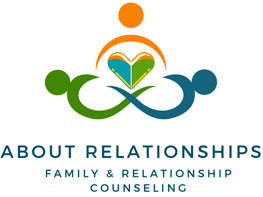Honoring Indigenous Cultures: A Path Toward Connection and Healing
As a therapist, I often witness how deeply our relationships—with others, with the world, and with ourselves—impact our well-being. Honoring Indigenous cultures and voices isn’t just about acknowledgment; it’s about fostering meaningful connection, respect, and healing. Indigenous teachings emphasize interconnectedness and balance, ideas that resonate with mental health principles. In this blog post, I invite you to explore small but impactful ways to honor Indigenous cultures in everyday life—and how doing so can deepen our relationships to the world and those around us.
Understanding the Importance of Indigenous Voices
Indigenous communities have long been caretakers of the land, guiding us toward sustainable living and holistic ways of being. Today, these voices continue to shape conversations on environmental justice, mental health, and community resilience. Recognizing the richness of these perspectives allows us to step outside of individualism and embrace a more collective view of healing, one that emphasizes relationships and reciprocity.
5 Meaningful Ways to Honor Indigenous Voices
1. Learn from Indigenous Voices Directly
Seek out books, podcasts, and art created by Indigenous people to better understand their lived experiences. Listening to these voices helps us grasp both historical and contemporary issues from their perspectives.
Why it matters: Learning from Indigenous voices ensures they remain at the center of their stories, fostering deeper understanding and empathy.
2. Support Indigenous Businesses and Organizations
Small actions, like purchasing from Indigenous-owned businesses or donating to Indigenous-led nonprofits, can make a significant impact. In New Jersey, communities such as the Nanticoke Lenni-Lenape offer programs focused on cultural preservation and well-being.
Why it matters: Supporting Indigenous economic efforts strengthens community self-determination and preserves cultural traditions.
3. Amplify Indigenous Advocacy Efforts
Share and engage with Indigenous-led movements, such as those focusing on environmental preservation or the issue of missing and murdered Indigenous women (MMIW). Using inclusive platforms to amplify these efforts helps raise awareness and invites broader participation.
Why it matters: Advocacy ensures that Indigenous challenges are visible and that their leadership is recognized in addressing systemic issues.
4. Learn and Share the Indigenous History of Your Area
Take a moment to learn about the Indigenous tribes who lived on the land where you reside. Tools like Native Land Digital can help you explore this history. Sharing what you learn with others or attending local events—like powwows or art exhibits—can foster deeper understanding.
Why it matters: Recognizing the history of the land and the people who have cared for it cultivates respect and connection to the place.
5. Advocate for Indigenous Mental Health
Indigenous communities face unique mental health challenges rooted in historical trauma and systemic inequities. Engaging with and advocating for culturally responsive care can help support healing.
Why it matters: Supporting mental health efforts grounded in Indigenous values promotes healing that honors both tradition and modern care practices.
Deepening Our Connections through Respect and Reciprocity
When we honor Indigenous cultures, we nurture a sense of reciprocity—giving back in ways that benefit everyone involved. This is a lesson rooted in Indigenous teachings: that healthy relationships are built on mutual care, respect, and responsibility. Honoring these voices allows us to cultivate deeper empathy, understand the world more holistically, and contribute to a future grounded in inclusion and justice.
Moving Forward with Intention
As Indigenous Peoples' Day continues, let’s commit to small, meaningful actions that amplify Indigenous voices and strengthen our communities. Whether by learning more about Indigenous history, supporting Indigenous-led initiatives, or advocating for mental health access, these actions help us build connections rooted in respect.
By fostering these connections, we grow—not just individually, but collectively—toward a future where all voices are heard, valued, and honored.
